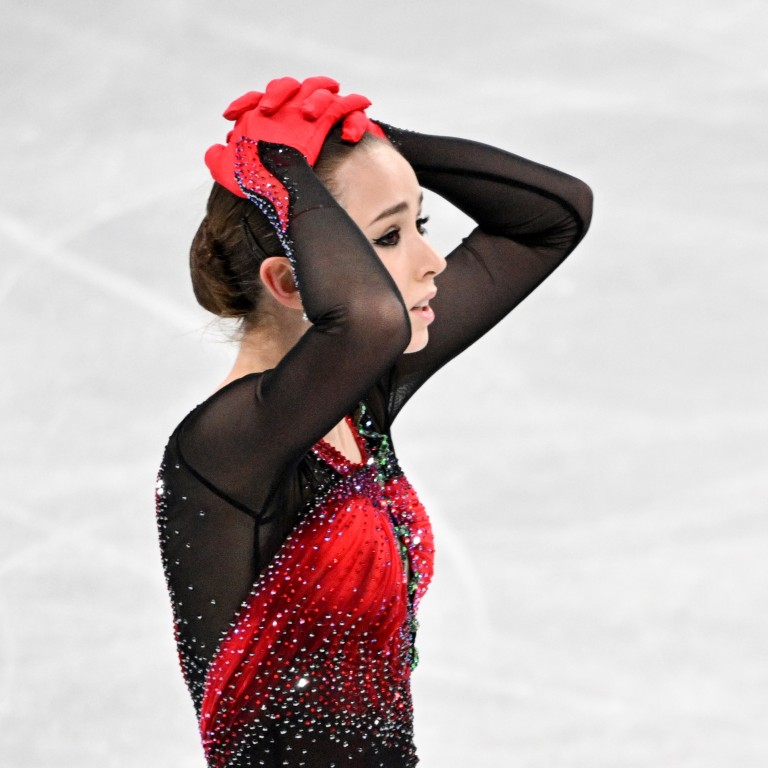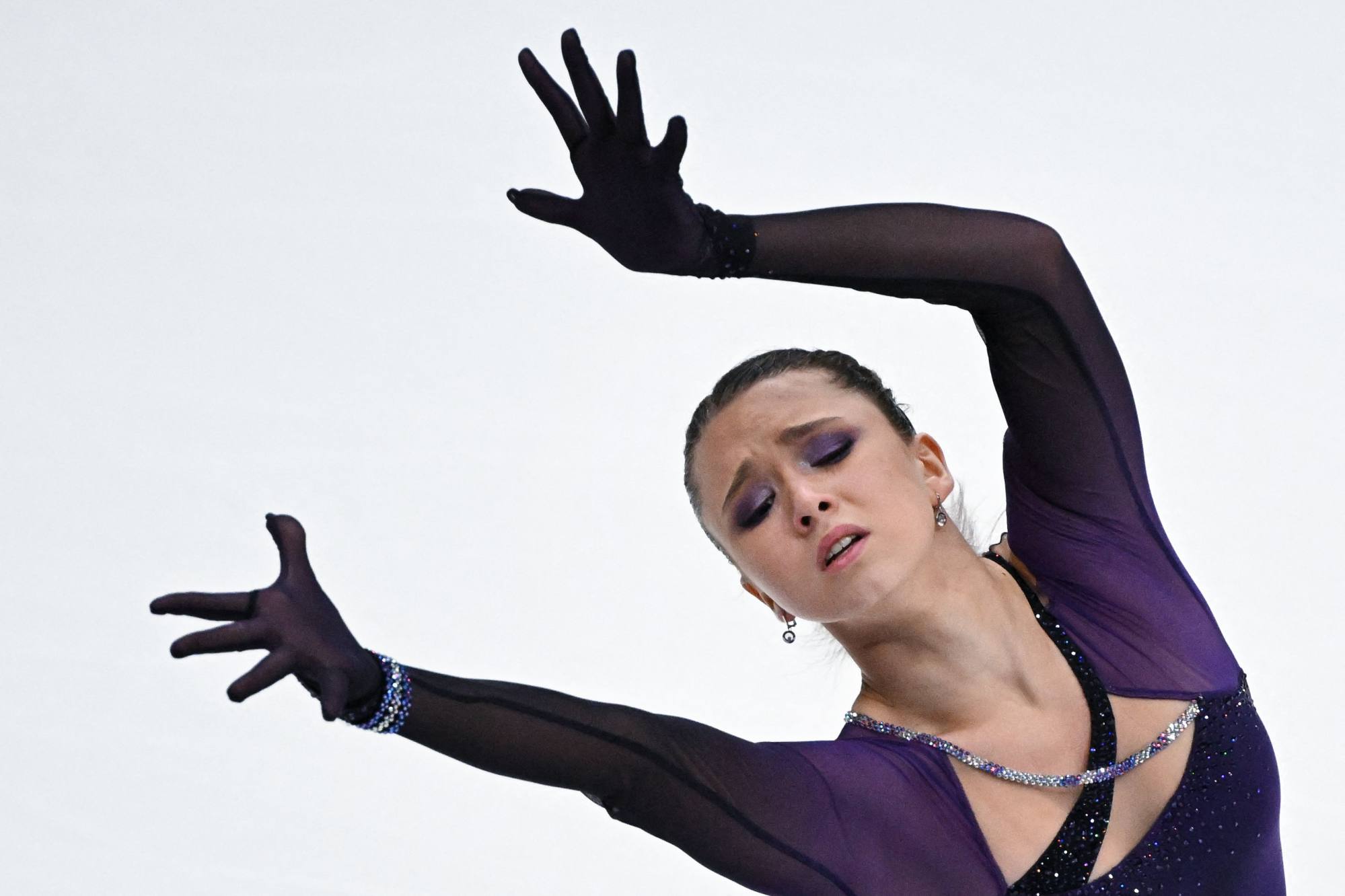
World Anti-Doping Agency seeks 4-year ban for Russian Olympic skater Kamila Valieva
- WADA is seeking a 4-year ban for the Russian figure skater, which could rule her out of the next Winter Olympics in 2026
- Medals for the event still have not been awarded and will not be until Valiyeva’s case is adjudicated
The Court of Arbitration for Sport’s Monday announcement that the World Anti-Doping Agency is seeking a four-year ban of Russian Olympic figure skater Kamila Valieva does not mean the months-long doping saga is going to end soon.
“Unless WADA expedites the case, which it certainly could do, this could take awhile even though it’s a pretty straightforward case,” US Anti-Doping Agency CEO Travis Tygart said.
“Under normal CAS process, it easily could be the end of 2023. Since it seems that the Russian strategy is to delay and avoid, if that continues at CAS, this easily could be another nine to 18 months.”
Last week, Tygart proposed that the 2022 Beijing Winter Olympic athletes who still have not received their medals due to excruciating Russian delays in the Valieva case finally could be celebrated with a medal ceremony at the 2024 Summer Olympics in Paris, possibly at the opening ceremony.

While that is only a suggestion, the idea was met very positively by several people within the international Olympic community, who spoke on the condition of anonymity because of the subjective and uncertain nature of the matter.
Nine months ago at the Beijing Games, Russia won the gold medal, the United States won the silver medal and Japan won the bronze in the team figure skating competition.
The following day, those results were thrown into disarray when Valieva, the then-15-year-old star of the Russian team, was found to have tested positive for the banned substance trimetazidine the previous December, forcing the unprecedented cancellation of the event’s medal ceremony.
There could be a reordering of the medals if Valieva were to be disqualified by CAS, with the United States moving up to take the gold, followed by Japan and Canada, the fourth-place finishers in the competition.
But how the CAS panel will rule is anyone’s guess.
“It’s absolutely possible under the rules that it’s a four-year sanction but it’s also possible under the rules that it’s no sanction or anything in between,” Tygart said.
“Hopefully the case will be presented in an open and transparent way to give confidence in the final outcome, especially for the fans and the teams who competed and who are waiting for their medals.”
Another CAS panel that was convened at the Beijing Olympics allowed Valieva to continue to compete in the women’s competition at the Games, citing the fact that Valieva was a “protected person” (a minor in this case) under WADA rules.
That CAS ruling did not address the merits of the doping case and in fact allowed her to compete in part because of the possibility that she might not be banned at a later date.
Skating under the weight of a full-blown Olympic scandal, Valieva, the gold-medal favourite, stumbled to a fourth-place finish.

